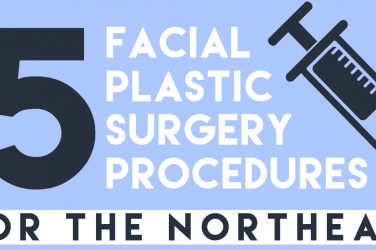It’s not a secret that patient outcomes have improved since the introduction and development of new medicines and new technologies. However, the same is also true when we look at the advancement of the nursing profession. Modern nurses are expected to have much more experience and knowledge than nurses in the past. Additionally, they are burdened with much more responsibility than ever before. This article lists just a few of the ways that the nursing profession has evolved to deliver the modern nurses who provide the best outcomes for patients and save lives.
Evidence-Based Practice
Evidence-based practice is not a new concept. In fact, it dates all the way back to the 1800s when Florence Nightingale noted the connection between unhygienic conditions and the death rates of patients. However, since then, evidence-based practice has evolved, and its basic principles have been developed into comprehensive models and strategies of how to apply it in lots of different healthcare settings. When we talk about this practice now, we refer to a method of problem-solving to make the best possible clinical decisions for a patient. Nurses trained in evidence-based practice are enabled to evaluate research to understand the risks and benefits of tests and procedures so they can best advise a patient based on their individual situation. This massively benefits patients as it means the care that they receive is individually tailored towards them, and it allows them some form of autonomy and choice in the treatment they receive.
Evidence-based practice has, in theory, completely altered our approach to patient care, as its methods have generally been acknowledged to improve patient outcomes, and therefore, as an added benefit, put less of a strain on services, and decrease costs for healthcare organizations. However, until recently, it has not been focused on in most nursing degrees, meaning the majority of qualified nurses are still not trained in evidence-based practice and, therefore, it is not used in healthcare settings to the extent it could be. Yet slowly but surely this is changing. For example, in recent years, there are lots of courses such as Doctor of Nursing Practice programs that have put evidence-based practice at the forefront of their teaching to integrate this more into the healthcare system. The more evidence-based practice is used in the nursing profession, the more patients will be able to access effective, individualized care.
Expansion in Responsibilities
There was a time when nursing was simply a care-taking profession and nurses had few and simple responsibilities. They were essentially viewed as a doctor’s assistant. However, those days are long gone and nursing has changed a lot over time. Nursing is now a profession in its own right and nurses are viewed as accomplished medical professionals. The role of a nurse is now much broader than it has ever been before, and the title now comes with many more responsibilities. Modern nurses are expected to provide patient care, advocate for their patients, lead teams of healthcare professionals, conduct their own research to improve care, evaluate the research of others, as well as much more. This is one of the most significant reasons patient care has improved so rapidly over the years. With the growing number of patients, nurses have been forced to adapt in skills and knowledge and take over the burden of responsibilities that were previously left solely to doctors. The modern nursing profession ensures that patients receive the fast, quality treatment they need and aims for the best possible patient outcomes.
Additionally, nursing is now a career that offers lots of opportunities to progress in both education and training. To elaborate, nursing degree graduates can go on to become nursing practitioners or get a masters or a Ph.D. This is not only good for the people in the profession and wanting to go into nursing, but it also has positive consequences for the patients. For example, in a lot of cases, nursing practitioners extend access to treatment, diagnosis, and medication, without patients having long waits to see a doctor. Additionally, nurses in further education can conduct research into improving patient care and outcomes, which can go on to benefit the healthcare system and further improve patient experience in the future.
Specialization
The introduction of specialization for nurses has undeniably and irreversibly changed the nursing profession. There are so many different areas a nurse can specialize in. For example, there is cardiac, mental health, critical care, and neonatal, just to name a few. This has clearly had numerous benefits for patient care and outcomes. Nurses spend considerably more time with patients than doctors so having a nurse who is incredibly knowledgeable about and experienced in their specific field helps to promote individualized and patient-centered care, which often leads to better outcomes as the patient is receiving treatment based on their unique circumstances and preferences.
Additionally, having a larger and more knowledgeable team of healthcare professionals does wonders for patient outcomes and improves patient experience through things like shorter waiting times for treatment. To add to this, nurses having specialized knowledge and experience can improve patient outcomes and save lives through earlier intervention or identification of a problem. For example, a nurse who is educated on a medicine given to a patient may be able to detect any possible complications with that drug earlier than a doctor as the nurse has more patient contact.
Furthermore, it is a fact that patients find it easier to put their trust in people they know have knowledge and skills. To elaborate, a 2002 study found that 73% of people said they would prefer to be treated by certified nurses. Specialization, therefore, improves patient experience as knowing their nurse has had specific training in their field is likely to put patients more at ease and increase patient compliance than if they were being treated by a general registered nurse.
Maintaining Communication and Compassion
Communication and compassion have arguably always been part of a nurses’ role. However, they are still very large parts of a nurse’s role. It is crucial that these skills evolve along with technology and the role of a nurse to ensure they are not lost in the broadening responsibilities of a modern nurse. Communication should go hand in hand with the evolving skills and knowledge of nurses. Long gone are the days when a doctor would make a decision on a patient’s behalf and a nurse would carry out the request. Modern nurses are expected to research, explain, and discuss treatments with teams of healthcare professionals and patients and keep an open line of communication about what is going on. Open and honest communication is particularly important with the advancement of technology and the internet making information very easy for patients to access. Communication between nurses and patients helps patients to gain autonomy over their treatment and increases compliance. This makes for better patient experiences and outcomes.
Modern nurses also have to face the challenge of patients finding false or incorrect information on the internet and counteract this by having effective communication with their patients. Finally, compassion is a skill that modern nurses have to ensure they maintain. Even very advanced specialized nurses have a lot more patient contact than doctors do. This means they will be spending time with patients who are perhaps going through a very difficult time. Modern nurses are burdened with a lot more roles and responsibilities than nurses in the past have had to deal with, however, they need to make sure they balance this with having the time and people skills to be compassionate towards patients and families. This is perhaps the one part of their role that needs to remain the same despite advancement rather than because of progression. However, modern nurses are arguably in a better position to comfort patients and families. Their more expansive role means they will likely have more knowledge and experience of the patient’s situation and so, they may be able to provide answers to any questions the patient has.
Additionally, modern nurses are expected to advocate for their patients so they may be in a better position to help, take action, and advocate for the people they are working with rather than just providing comfort. This difference in how active a nurse can be in their patient’s care undeniably improves the experience of patients and therefore, the outcomes.
These are just a few of the ways that the progression of the nursing profession has had and is still having positive impacts on patient care and outcomes. Nurses have much more responsibility than they have in the past which allows them to act in the patient’s best interests, provide more skilled and experienced expertise and intervention, and deliver individualized and more patient-centered care. This clearly has a positive impact on patients and their outcomes and illustrates how vital the services modern nurses provide are. Without the advancement and progression of nurses over the last century, the healthcare system would not function, never mind provide the effective, individualized service that it does today.
Photo by Hush Naidoo Jade Photography







